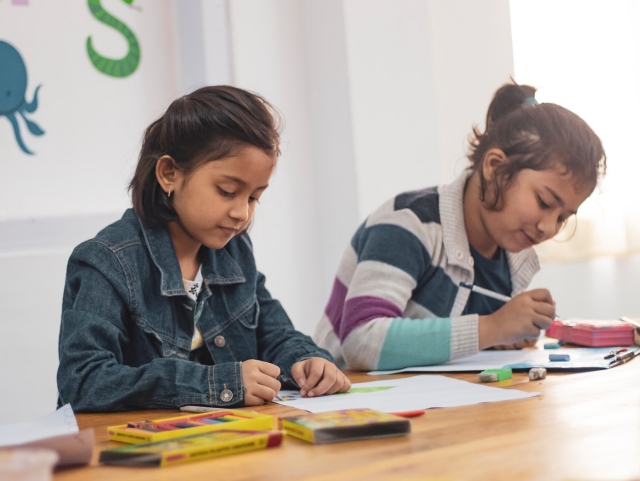What Every Parent Should Do To Keep Their Children Safe Online
As parents, you want to ensure that your children are safe and protected in all aspects of their lives.
When it comes to the online world, it can be a daunting and overwhelming task because, although the internet can be a powerful tool for learning and communication, it can also be a dangerous place for children who do not understand the risks associated with it. From cyberbullying to scammers, many dangers are lurking on the internet that can harm anyone, especially immature minds.

But with the right guidance, parents can help their kids stay safe online. In this blog post, you will learn tips that every parent should use.
Let’s begin!
1) Set up parental controls
By setting up parental controls, you can limit what your kids can access on the internet and help protect them from potential dangers. You can also control the amount of time they spend online and what kind of content they are exposed to.

The most important thing to do is to set up a password-protected account for yourself, where you can control what websites your children visit, what apps they download, and who they communicate with. You can also block sites that contain adult or otherwise inappropriate content.
Setting up parental controls is a great way to ensure your kids stay safe online. It can also help create healthy digital habits and teach your children to be responsible digital citizens.
2) Monitor their activity
By keeping track of your kids’ online activities, you can ensure they are not engaging in risky behavior and protect them from potential cyberbullying, inappropriate content, and other dangers.

Monitoring your children’s online activity can be done in various ways. For example, you can ask them about what sites they visit, keep a close eye on their social media accounts, and use parental control software or apps. You can even review their devices’ search history and ensure that there is no inappropriate content.
You can ensure they are safe and secure while using the internet. Not only will this help protect them from potential dangers, but it will also teach them to make responsible decisions when using technology.
3) Teach them about cyberbullying
Cyberbullying is a growing issue that can have serious consequences. Parents must ensure their children are aware of the dangers to take steps to protect themselves. Teaching youngsters about cyberbullying can help them stay safe online and avoid potential harm.

Explain to your kids what cyberbullying is and why it is wrong. Ensure they understand that it is unacceptable behavior and how it can hurt others. Remind them that they should never engage in any form of cyberbullying, no matter how tempted they may be. Let them know they can always come to you if they see or experience anything like this.
Discuss the different forms of cyberbullying, such as spreading rumors or mean messages via text, email, or social media. Show them examples of what cyberbullying looks like so they can recognize it if it happens to them.
Encourage your children to stand up for those who are being bullied online. Show them how to safely and responsibly intervene when they see someone else being targeted by cyberbullies.
Start the conversation early and keep talking about it regularly to ensure your kids are informed and know how to stand up for themselves.
4) Teach them about online strangers
It is essential to talk to children about potential dangers when using the internet, including interacting with people they do not know.

Parents should educate their kids about not sharing personal information, such as full name, address, phone number, etc., with strangers online.
You should also discuss the risks of your kids chatting with someone they just met online without looking them up on Nuwber, TruthFinder, or any other websites you trust. Teach your kids about understanding the potential dangers of being too trusting of an online stranger.
5) Keep the computer in a public place
When protecting your children online, one of the most important steps is to ensure the computer is kept in a public area of your home. Having the computer in a communal space rather than in a bedroom can help to make sure that they are not exposed to inappropriate content, as you can monitor and supervise their activity.

Furthermore, having the computer in a visible area can make your kids more aware that their activities are not completely private and will increase the likelihood that they will abide by your rules.
Additionally, this allows for better communication and dialogue between you and your children, which can be invaluable when providing them with guidance regarding internet safety.
Finally, keeping the computer in a public space also reduces the chance of cyberbullying or other unsafe behavior taking place without your knowledge.
6) Set rules for social media and cell phone use
It can limit the amount of time spent online and monitor the content your children are accessing.
Setting rules for social media and cell phone use can also help your child be healthy. The more time they spend online, the worse it is for them, especially for their eyes, back, and neck. A lot of time spent online can even affect mental health: it decreases attention span, causes mood swings and impulsivity.

It is also important to talk to your children about their online activities and ensure they understand why you are setting these rules.
7) Stay up to date on technology
As technology changes and advances, parents must be aware of the potential risks and dangers their children may face in the digital world.

By familiarizing yourself with the latest tech trends and being proactive about monitoring your kids’ online activities, you can be sure that they are safe and protected from potential threats.
8) Lead by example
By monitoring your own online habits and setting a good example, you can help your children understand the importance of responsible internet usage.

Parents should create a comfortable environment for kids to ask questions and discuss their online activities, encouraging a healthy and open dialogue. Moreover, the older generation should not be afraid to ask youngsters questions about their online activities and should be aware of the different applications and websites they may use.
Finally, parents must know the age restrictions on different sites and the measures they can take to guarantee that their offsprings are protected.
9) Seek professional help if needed
If parents feel overwhelmed or unsure about how to protect their children, they should seek professional help. Professional guidance can identify potential risks and equip with the necessary tools to keep kids safe online.

Additionally, experts can offer invaluable advice and resources to help parents stay informed and vigilant regarding their children’s online activities.
The bottom line
As a parent, it is essential to protect your kids online and ensure they stay safe. Thankfully, there are several measures you can take.
Although it is impossible to completely eliminate the potential for danger online, taking the steps discussed here will reduce the risk of harm and allow your child to explore the internet without fear.
With that being said, it is important to continue monitoring your kid’s activity and engage in regular conversations about online safety. Doing so will not only make your home a safe space, but it will also teach your children how to be responsible digital citizens.






